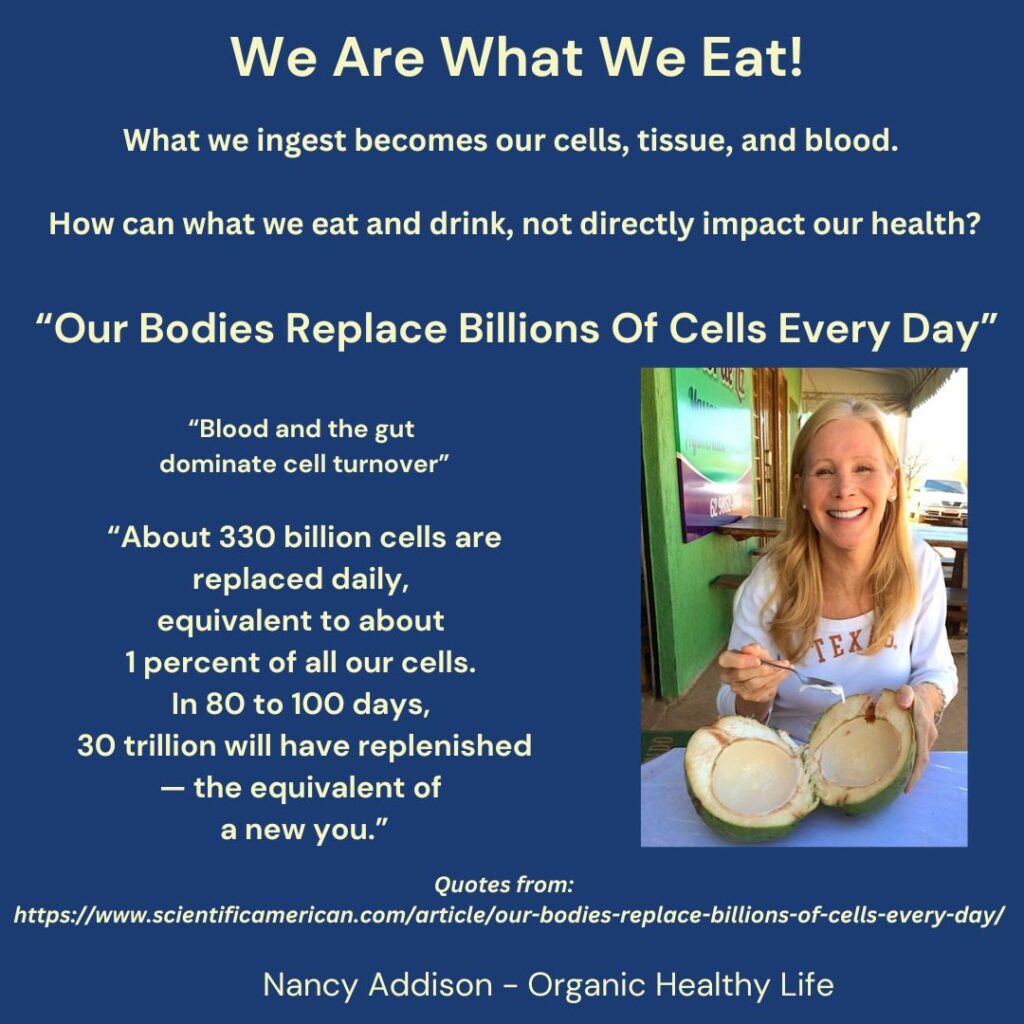More than 100 million people today have diabetes or pre-diabetes. A recent study conducted by a team of American and Japanese researchers showed that people who have diabetes can vastly improve their health by eating an entirely plant-based diet. (1)
During my work with people who have diabetes, I have found that they show remarkable improvement in their health and well-being from consuming a plant-based and almost completely raw-food diet. Dr. Gabriel Cousens promotes a mostly raw food, vegan diet for his Diabetic patients who would like to reduce their medications.
After they complete the program, they understand that the type of food they eat has a direct impact on their health. (2) In 2014, Cardiovascular Diagnosis and Therapy published a study in which researchers performed a meta-analysis of six significant prior research studies. Researchers found that a plant-based diet significantly improved blood sugar control in Type 2 diabetes.
The results were that plant-based diets improved a key indicator of blood sugar control, an indicator called Hemoglobin A1c. The results improved as much as 1.2 points, which is much greater than the effect of typical oral diabetes medications. (3)
The benefits of excluding meat, cheese, and eggs from the diet was as much as 0.7 points in some of the studies, and averaged 0.4 points overall. (4)
Dr. James Anderson studied 25 Type 1 and 25 Type 2 diabetics. This study involved placing the patients on a high-fiber, high-carbohydrate, low- fat diet in a hospital setting. Dr. Anderson initially put the patients on the American Diabetes Association recommended diet plan for one week. Then he switched them over to a vegetarian, plant-based diet for three weeks.
None of these patients were overweight when they started the study, but they were on insulin shots to control their blood sugar levels. All through the study, Dr. Anderson measured their blood sugar levels, their cholesterol levels, their medications, and their weight. Type 1 diabetics cannot produce insulin, and it was thought that dietary changes would not affect this situation. But, the results showed that after three weeks on a vegetarian, whole-food, high-fiber diet, the “Type 1 diabetics were able to lower their insulin medication by an average of 40%”, “their blood sugar profiles improved dramatically”. (5)
These results were more impressive with the Type 2 diabetics who had not incurred as much damage to their pancreas. After three weeks on the high-fiber, vegetarian diet, 24 of the 25 Type 2 diabetics could discontinue their insulin medication completely.
The one Type 2 diabetic who wasn’t able to get off his medication had been a 25-year diabetic taking 35 units per day. After three weeks of vegetarian food, his requirement dropped down to only eight units per day. As he continued the vegetarian eating plan at home, he was able to cut out all insulin shots after another eight weeks. (6)
Studies have shown that eating more plant- based whole food increases your dietary fiber intake. This can be extremely important to “protect from the development of atherosclerotic cardiovascular disease, certain types of cancer, some gastrointestinal disorders, hypertension, obesity, and non-insulin-dependent diseases. Furthermore, increasing fiber intake provides therapeutic advantages for the management of high blood lipids, certain gastrointestinal disorders, hypertension, obesity, and diabetes”. (7)
Besides adopting a plant-based diet, diabetics can take six important dietary food supplements to regulate their blood sugar and support their health:
1. Chromium
2. Cinnamon
3. Omega-3 Fatty-acids
4. Vitamin D
5. Zinc
6. Unrefined, Mineral-rich Salt
The mineral chromium helps transport glucose from the blood to the muscles. According to the National Institutes of Health, “Chromium is known to enhance the action of insulin, a hormone critical to the metabolism and storage of carbohydrates, fat, and protein in the body.” (8)
People who eat non-organic foods have a greater likelihood of being deficient in this important trace mineral. The chemical fertilizers used in industrial farming destroy chromium that would naturally be in the soil. This is one of many reasons organic food is always the best choice at the grocery store.
Chromium supplements should have GTF (Glucose Tolerance Factor) on the label. It should say, “Chromium GTF”. Avoid synthetic supplements that don’t list whole, organic foods as the ingredients.
is emerging as a true wonder food. Cinnamon is a spice, and it’s obtained from the inner bark of a few tree species. Research shows that cinnamon can help lower blood sugar, and triglyceride levels in people with Type 2 diabetes.
Cinnamon contains antioxidants that create healthier arteries and reduce the risk of cardiovascular disease. Cinnamon can also benefit us with increased alertness and energized senses. Even a teaspoon a day helps tame blood sugar levels.
Ceylon cinnamon is the best cinnamon to use. Cassia, Saigon, and Chinese cinnamon contain five percent coumarin, which is problematic for the liver. Ceylon cinnamon has only .0004 percent coumarin. Sprinkle it on your morning toast, oatmeal, or other dishes.
Omega-3 fatty acids are healthy fats our bodies cannot make and must obtain from food.
Studies show that adding omega-3 to your diet promotes healthy blood sugar levels. Try adding cold-pressed, organic flax or hemp seed oil to your smoothies and other foods, like oatmeal chia seed pudding in the morning.
Vitamin D (known as the sunshine vitamin) is a prohormone; that is, a fat-soluble vitamin. It is in a family of compounds that includes Vitamins D-1, D-2, and D-3. These vitamins can affect as many as 2,000 genes in the body.
Johns Hopkins University School of Medicine studied the medical information of 124 subjects between the ages of 36 and 89 with Type 2 diabetes. Those with the lowest levels of Vitamin D had the highest levels of blood sugar. Only six percent of the subjects were taking a Vitamin D supplement. You may need to address a possible Vitamin D deficiency. I supplement my Vitamin D intake with a whole-food, organic, raw multi- vitamin.
Zinc is one of the most important minerals used by the body. It helps with the production of approximately 100 enzymes. Zinc contributes to building up the immune system. Zinc is required for protein and DNA synthesis, insulin activity, and liver function.
Zinc is not really stored in our bodies, so we need a regular supply. Men need about one-third more zinc than women, because the prostate gland and semen are highly concentrated with zinc. A zinc deficiency may appear as skin problems, impairment of taste, a poor immune system, hair loss, diarrhea, fatigue, wounds not healing properly, or a poor or slow growth rate for infants.
Even if you eat zinc-rich foods, you may need a supplement, because phytic acid and dietary fiber in certain foods can inhibit the absorption of zinc. If you take a vitamin supplement of any kind (such as a multi-vitamin, Vitamin D, chromium, or zinc), make sure it is in a natural form, not a synthetic one. Synthetic forms of any nutrient can be harmful to the body (9). Instead, buy dietary supplements that show whole, organic foods in their ingredient list.
Unrefined mined salt promotes the proper balance for the endocrine, adrenal, and thyroid glands to function properly. It supports healthy blood pressure, detoxifies the body, and—along with water—is necessary for the optimal functioning of the immune system, hormonal system, and cardiovascular health. (10)
Dr. David Brownstein says low-salt diets “promote toxicity” and have: …adverse effects on numerous metabolic markers, including promoting elevated insulin levels and insulin resistance. Finally, low-salt diets will lead to mineral deficiencies and the development of chronic disease.(11)
In conclusion, you can see that diet is a huge factor in curing or managing diabetes, and also preventing many diseases that diabetes often leads to, including blindness, amputation, stroke, and heart disease.
Additionally, it can prevent having to take insulin injections for the rest of your life.
My award-winning book, “Diabetes and your Diet,” can be an extremely helpful resource for you. The book includes nutrition information and recipes, and is available in large print and audio.
It’s a personal decision that no one can make for you. I always feel it is so powerful when someone finally decides to take control of their health and well-being, and chooses to make the necessary changes. It all starts with making that decision and taking action to execute it.
Contact me if I can help you in any way.
Nancy’s 7 books on Amazon are also in Audio and some of them are in large print:
https://www.amazon.com/Nancy-Addison/e/B00E6K5KGY/ref=dp_byline_cont_pop_book_1
Nancy’s website is: https://www.organichealthylife.com
Support Nancy’s work – Donate on venmo – @Nancy-Addison
Medical Disclaimer:
Information provided in this podcast, blog, article, video is for informational purposes only. The information is a result of years of practice and experience by Nancy Addison CHC. However, this information is NOT intended as a substitute for the advice provided by your physician or other healthcare professional, or any information contained on or in any product label or packaging.
Do not use the information provided in this blog, audio podcast, article, video for diagnosing or treating a health problem or disease, or prescribing medication or other treatment. Always speak with your physician or other healthcare professional before taking any medication or nutritional, herbal or homeopathic supplement, or using any treatment for a health problem. If you have or suspect that you have a medical problem, contact your health care provider promptly. Do not disregard professional medical advice or delay in seeking professional advice because of something you have read in this email.
Information provided in this video or audio and the use of any products or services related to this video by you DOES NOT create a health counselor-client relationship between you and Nancy Addison, certified health counselor. Information and statements regarding dietary supplements have not been evaluated by the Food and Drug Administration and are not intended to diagnose, treat, cure, or prevent any disease.





